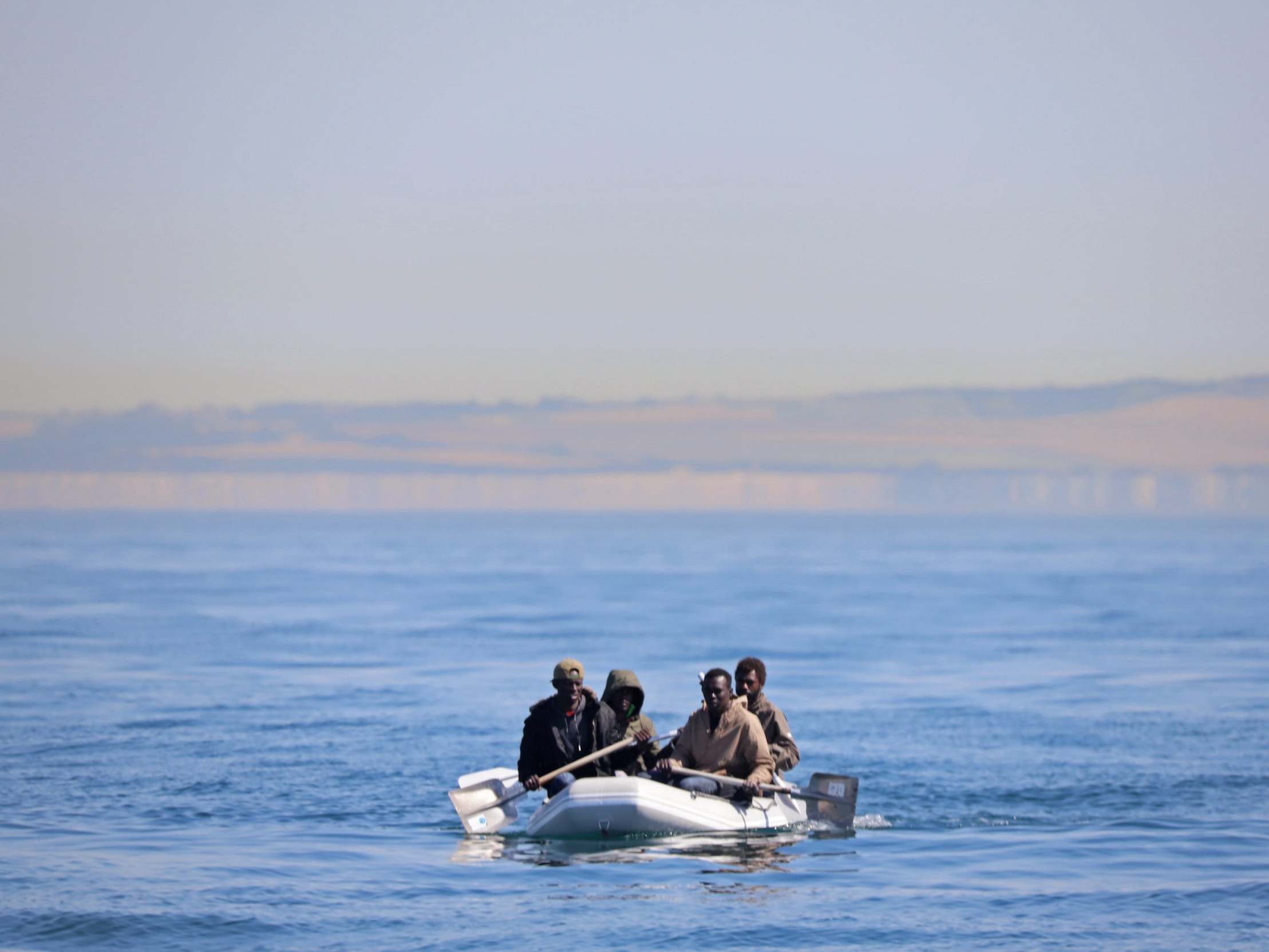Not bad, stupid or criminal: How Boris Johnson’s comments on small boat crossings are divorced from reality
Analysis: Lawyers and charities tell May Bulman prime minister’s remarks carry some considerable inaccuracies


Your support helps us to tell the story
From reproductive rights to climate change to Big Tech, The Independent is on the ground when the story is developing. Whether it's investigating the financials of Elon Musk's pro-Trump PAC or producing our latest documentary, 'The A Word', which shines a light on the American women fighting for reproductive rights, we know how important it is to parse out the facts from the messaging.
At such a critical moment in US history, we need reporters on the ground. Your donation allows us to keep sending journalists to speak to both sides of the story.
The Independent is trusted by Americans across the entire political spectrum. And unlike many other quality news outlets, we choose not to lock Americans out of our reporting and analysis with paywalls. We believe quality journalism should be available to everyone, paid for by those who can afford it.
Your support makes all the difference.“This is a very bad and stupid and dangerous and criminal thing to do,” said Boris Johnson on Monday, in response to a spike in people crossing the Channel in small boats.
The prime minister, speaking hours after 20 Syrians arrived on Kent shores in a dinghy, proceeded to state that people arriving on boats were able to remain in the country despite “blatantly coming here illegally”.
His claims that the crossings are illegal, wrong and “stupid” have been met with broad condemnation from lawyers and charities. They say that not only are his remarks “just noise and rhetoric”, but that they also carry some considerable inaccuracies.
It isn’t ‘criminal’: it is legal to cross the Channel via unauthorised routes to claim asylum
There is no lawful restriction against people choosing the country in which they want to seek asylum, and the people crossing the Channel are not committing any unlawful act in doing so, according to Christopher Desira, human rights and immigration solicitor at Seraphus law firm.
The 1951 Refugee Convention, a legal document which defines the term “refugee” and outlines their rights, features no obligation for refugees to claim asylum in the first safe country they reach – so it is legitimate for someone to pass through France and then claim asylum in Britain.
It is then up to the UK to decide whether or not to grant asylum. Under the Dublin III Regulation, the UK has lawful means to transfer those people to the country where they first claimed asylum, so long as this can be proven. But their entry into the UK is not illegal in itself.
Mr Desira criticised Mr Johnson’s comments for being “just another attempt to dehumanise the people doing this, so we can treat them in numbers and as criminals, and not understand what they’re doing and why”.
It isn’t ‘very bad’: there is no other way for people to claim asylum in the UK – and why shouldn’t they?
The idea that crossing the Channel on a small boat amounts to cheating their way in or “jumping the queue” is false. People have the right to claim asylum in the UK, and the routes for doing this from outside the country are few and far between – and often very difficult to access.
Currently, due to travel restrictions during the coronavirus pandemic, there is in fact no lawful way to reach the UK on refugee or humanitarian grounds, according to immigration lawyer Colin Yeo.
“There is a tiny proportion of those refugees who reach Europe who are desperate to reach the UK specifically and because there are no safe or legal routes to reach our country, they sometimes take extreme measures,” he says.
“At least two are known to have drowned doing so in 2019 when there were fewer of these small boat crossings. The government cannot prevent people wanting and indeed trying to come here but they can work with the French to offer alternatives to these dangerous crossings.”
With this in mind, it is also important to remember that the number of people who seek asylum in Britain (44,800 in 2019) is far below that in EU countries such as Germany, which takes in around four times as many, and France, which takes three times more than the UK.
Last year, there were around five asylum applications for every 10,000 people resident in the UK, while across EU countries there were 14 asylum applications for every 10,000 people, according to the Commons Library.
More than half of people who claim asylum in Britain obtain refugee status and provide a net contribution to the UK, indicating that they are people who want to work and contribute to society and the economy.
If there is no safe or “legal” route through which they can request protection and start a new life in Britain, it is inevitable that some will attempt to reach UK shores via unauthorised means.
It isn’t ‘stupid’: people have valid reasons to come to the UK after fleeing persecution
The vast majority of people trying to cross to the UK do so because they have close ties with people in the country or its culture, according to Frances Timberlake, coordinator at the Refugee Women’s Centre, a small charity supporting migrant women and families in Calais and Dunkirk.
“A lot of the families here are Iraqi Kurds, and there’s a large Kurdish community in the UK, so basically everyone I work with has very close family members or friends and community links to people in the UK,” she explains.
“For the majority of people we work with it’s also linked to colonialism. They come from countries that had a former British presence in them, so have quite a strong link to British culture, British media, the English language. A lot of people from Iraq for example who have worked with British forces or British oil companies. It’s very much linked to the UK’s presence abroad, and that creates a stronger sense of connection.”
With this in mind, it is important to remember that people have made irregular Channel crossings going back decades, and the rise in the use of small boats is likely to represent more of a shift in method than a new phenomenon of “stupid” journeys.
Rob McNeil, from the Migration Observatory, says most of those who are now crossing on boats would have previously been crossing on lorries via the Channel Tunnel – and that fortified security by the British and French governments was likely to have been a key factor in people switching to a different route.
“This is to some extent one of those situations where you squeeze things in one place and it creates a bubble somewhere else, in so far as the UK and French governments have spent an extremely long time working on preventing a new Jungle being created in Calais, and trying to crack down on people entering the UK in the back of lorries,” he says.
“The more that becomes a physical deterrent, irrespective of the extent to which it succeeds in preventing people from moving, the more people are going to be looking for alternative approaches to doing things.”
On this note, Frances adds: “I would use stupid to describe most of the policies the UK has proposed so far, which have totally failed.
“They haven’t limited the strength of smuggling or trafficking groups at all. It hasn’t limited the number of crossings being made. It’s just forced them to more dangerous routes, and it’s not saving any money. That’s what is dangerous and criminal.”
Join our commenting forum
Join thought-provoking conversations, follow other Independent readers and see their replies
Comments